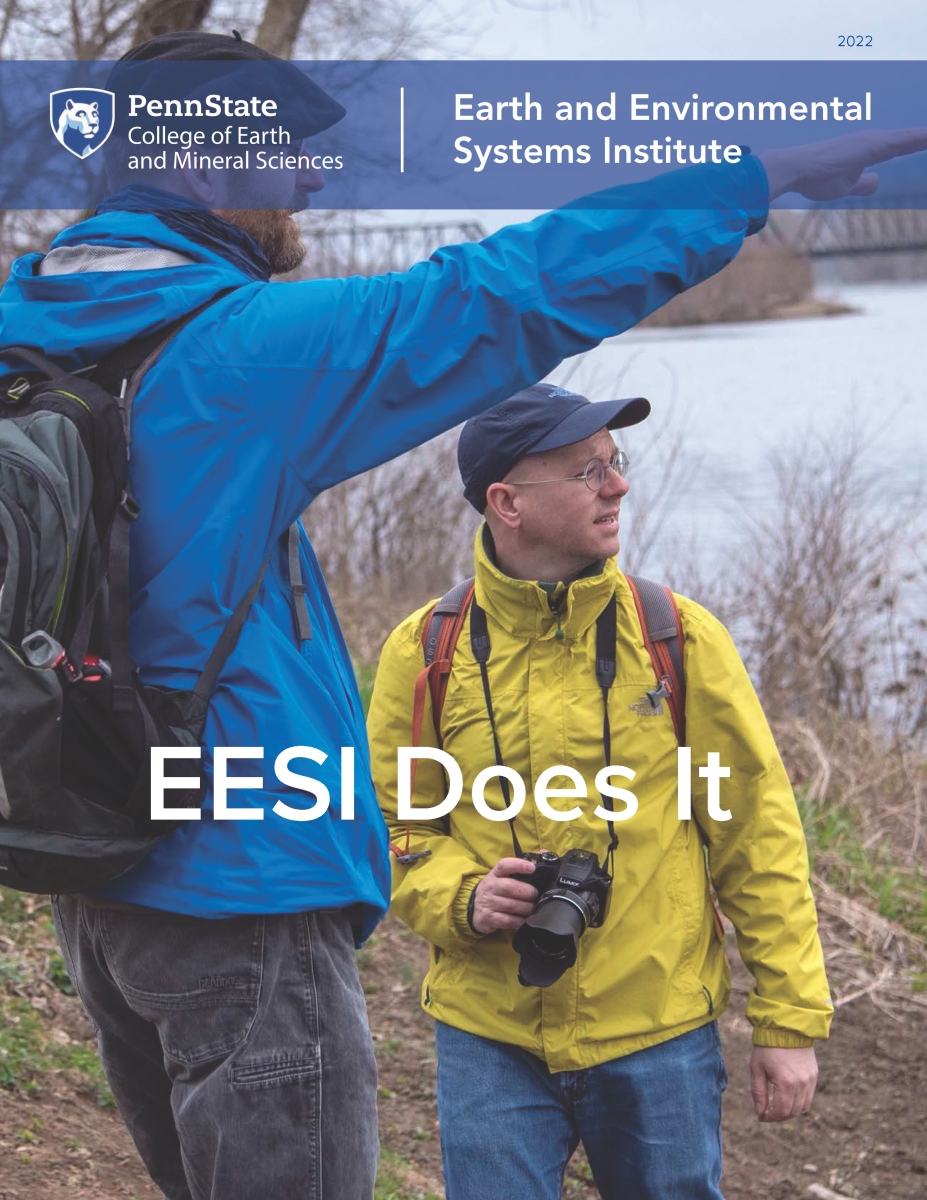EESI and PSIEE faculty participate in science communications workshop
October 2013
Scientists who master the art of communication not only do a good job explaining their work and its importance, they become better scientists in the process.
That was the message of Nancy Baron, a science communications expert who talked at Penn State in September as part of a workshop she held for faculty in the College of Earth and Mineral Sciences' Earth and Environmental Systems Institute and the Penn State Institutes of Energy and the Environment.
"Going public forces you to distill facets of your work, and to think harder about the questions, the scientific questions, what's known and what's still left to discover," Baron said. "Being a communicator isn't an add-on. It makes you better at science."

Baron is director of science outreach at COMPASS, which helps scientists communicate their work to journalists, policy makers and the public. She is author of "Escape from the Ivory Tower: A Guide to Making Your Science Matter," lead trainer for the Leopold Leadership Program and recipient of the 2013 Peter Benchley Ocean Award for Excellence in Media.
Among the advice Baron shared with the students and faculty in the audience was to be transparent when presenting information; find effective metaphors for explaining complex subjects; and be yourself.
The Penn State Institutes of Energy and the Environment and the Earth and Environmental Systems Institute in the College of Earth and Mineral Sciences sponsored her visit to University Park. Along with the talk, "The Risks and Rewards of Science Communication," Baron's visit included a daylong workshop with EMS and PSIEE faculty focused on finding ways to effectively communicate their research subjects.
 "People will turn to you because you have that clarity of expression — the ability to cut to the chase," she said. "So if each of you was to think of somebody who you really admire as a leader, chances are they are an effective communicator."
"People will turn to you because you have that clarity of expression — the ability to cut to the chase," she said. "So if each of you was to think of somebody who you really admire as a leader, chances are they are an effective communicator."


